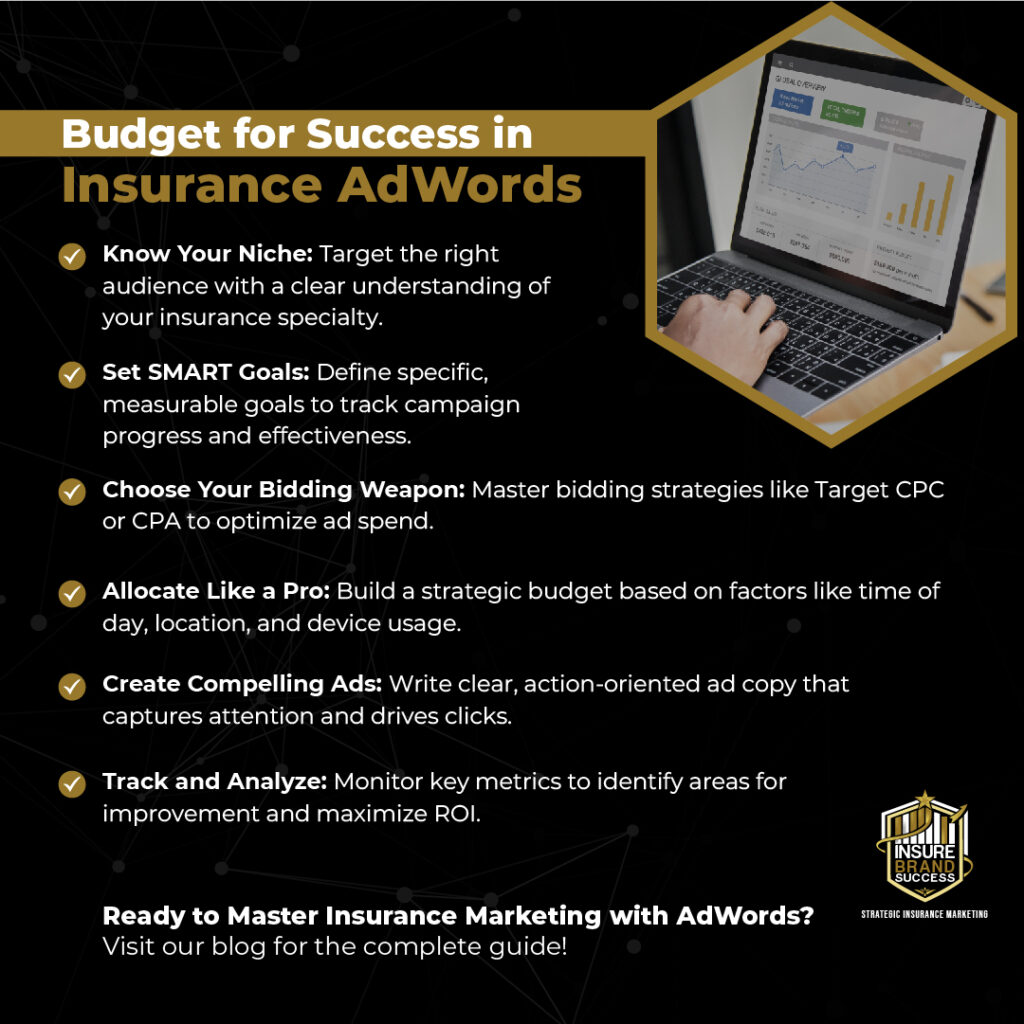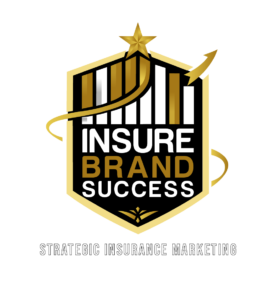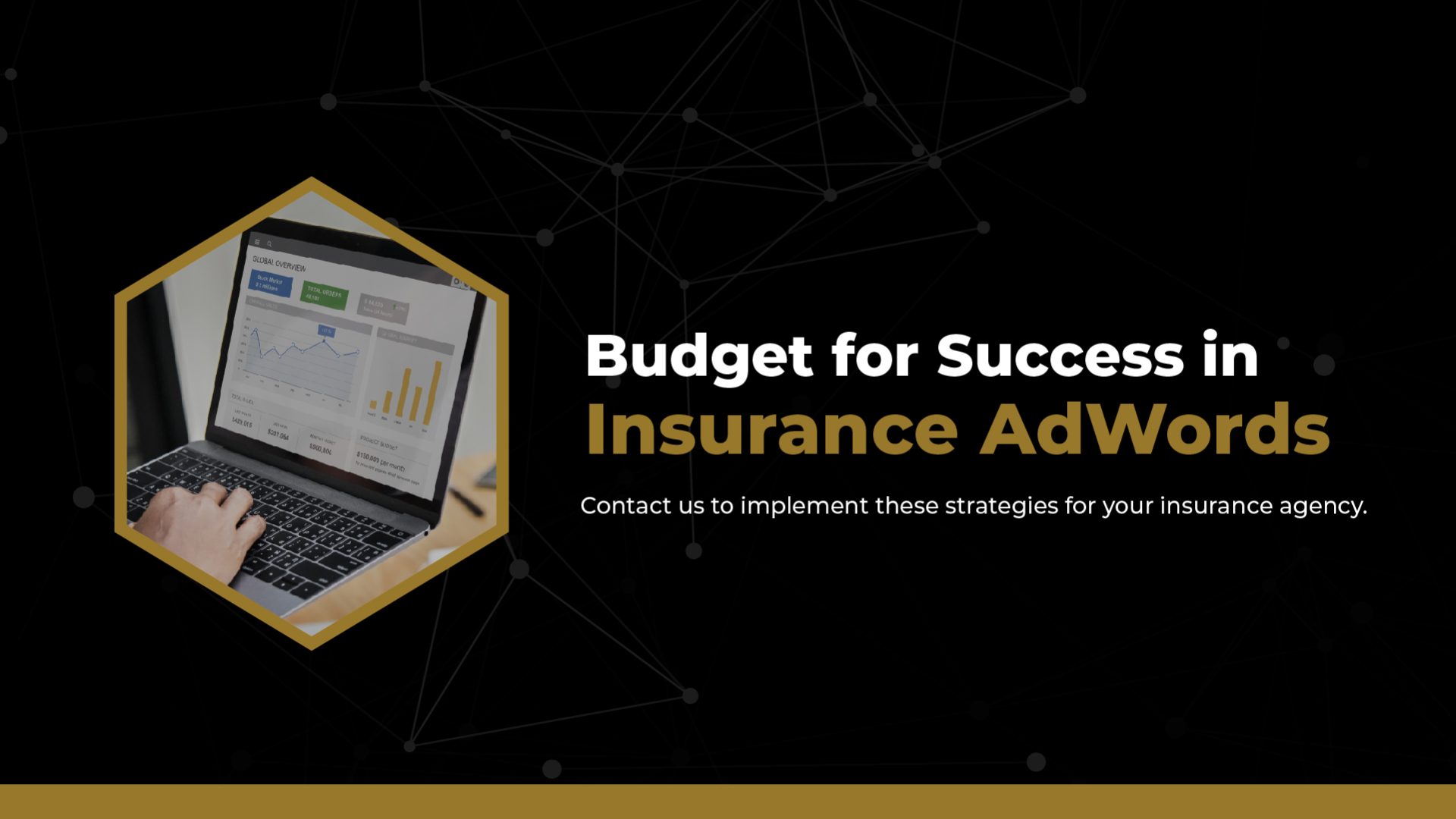In today’s competitive insurance market, the need for a solid digital marketing strategy is more crucial than ever. One of the most effective ways for insurance agencies to reach potential customers is through Google AdWords. AdWords allows you to display targeted ads to people searching for insurance products and services online, making it a cost-effective solution for increasing visibility, driving leads, and ultimately growing your business. However, the challenge many insurance agencies face is optimizing their AdWords campaigns to achieve maximum return on investment (ROI). This blog will provide actionable insights to help you optimize your AdWords budget and maximize your ROI.
Understanding the Value of AdWords for Insurance Agencies
Before diving into optimization strategies, it’s essential to understand why Google AdWords can be a game-changer for insurance agencies. AdWords works by placing your ads at the top of search results when users search for insurance-related terms. The advantage? You’re connecting with individuals already interested in your services. Moreover, with the right AdWords for insurance agencies strategy, you can outsmart competitors by bidding on keywords that lead to conversions rather than just clicks.
For insurance agents, where every lead could result in long-term customers, AdWords presents an opportunity to quickly get in front of high-intent audiences. But the real trick lies in efficiently managing your budget so that you’re not overspending or targeting the wrong audiences. Let’s explore the best strategies to optimize your AdWords campaigns for maximum ROI.
1. Set Clear Goals and KPIs
Before launching any campaign, it’s vital to establish clear goals and measurable Key Performance Indicators (KPIs). This will not only guide your budget allocation but also allow you to track the success of your campaign. Your goals may vary, but common objectives include increasing website traffic, generating qualified leads, or boosting sales. Your KPIs might include metrics such as cost per lead, conversion rate, and click-through rate (CTR).
For instance, if your goal is to generate leads for your insurance services, tracking your cost per lead and conversion rate becomes crucial. The lower your cost per lead, the higher your ROI. Conversely, if your goal is brand awareness, your focus may be on maximizing impressions and CTR. For more detailed information on AdWords strategy and budgeting, you can refer to Google’s official AdWords help center.
2. Research and Select the Right Keywords
The backbone of any AdWords campaign is the keywords you choose. The goal is to bid on keywords that drive traffic and convert potential customers without breaking the bank. When it comes to AdWords for insurance agencies, it’s important to strike a balance between high-traffic, broad keywords and more niche, long-tail keywords.
For example, a broad keyword like “insurance agency” may drive a lot of traffic, but it could also eat up your budget quickly due to competition. Alternatively, long-tail keywords like “best insurance agency for small businesses” may have lower search volumes but are likely to convert better, as they are more specific and reflect user intent.
To get the most out of your budget, consider using tools like Google’s Keyword Planner to identify high-value keywords with lower competition. Moreover, segment your keywords into different ad groups based on their intent. You can have separate campaigns targeting potential new customers and another one targeting clients looking for renewal options.
3. Leverage Location Targeting
One of the most overlooked features in AdWords is location targeting. If you are a local insurance agency, there’s no point in showing your ads to people outside your service area. By using location targeting, you can ensure your ads are only displayed to people searching for insurance services within your geographical area.
For instance, if you run an agency in Austin, Texas, you could set your AdWords to only appear to users in that region. This ensures your budget is used to target potential customers who are more likely to convert into leads and clients. By narrowing your focus geographically, you can significantly increase your ad’s relevance and lower your cost per lead. You can find more detailed advice on geographic targeting through the U.S. Small Business Administration (SBA).

4. Use Negative Keywords to Save Budget
Negative keywords are terms that prevent your ads from showing for irrelevant searches. By filtering out these terms, you can avoid wasting money on clicks that won’t convert into leads. For example, if you specialize in health insurance and have no interest in car insurance, you could add “car insurance” as a negative keyword. This prevents your ads from appearing for users searching for car insurance, ensuring your budget is focused on the right audience.
Regularly reviewing your search query report will help you identify search terms that are triggering your ads and allow you to refine your negative keyword list. This process of elimination not only reduces wasted clicks but also helps improve the relevance of your ads, leading to a higher quality score and lower cost-per-click (CPC). For further insight, you can visit Google’s best practices for keyword optimization.
5. Test Different Ad Variations
Ad copy plays a significant role in your AdWords performance. While targeting the right keywords is essential, you also need engaging ad copy that captures attention and compels the user to click. To determine which ads perform best, create several ad variations and test them against each other.
Split testing (A/B testing) involves creating different versions of your ad with small changes such as headlines, call-to-actions, or descriptions. Google will rotate these ads and eventually favor the one that generates the best performance. By constantly testing and tweaking your ad copy, you can improve CTR and ultimately increase your ROI.
Additionally, don’t forget to use ad extensions like call buttons, location, and reviews to provide extra information and increase the likelihood of clicks.
6. Set a Realistic Budget and Adjust Based on Performance
Setting the right budget is one of the most critical aspects of a successful AdWords campaign. Start with a budget that you’re comfortable spending, but be prepared to adjust it as you gather data. If you see that certain keywords are driving a significant number of conversions, it might be worth increasing your budget for those terms.
On the flip side, if some keywords are eating up your budget without converting, pause them and reallocate your budget toward higher-performing keywords. Regular monitoring and adjusting your bids based on performance can dramatically improve your ROI.
Remember, AdWords operates on a pay-per-click model, meaning you only pay when someone clicks on your ad. This makes it an excellent tool for agencies with flexible budgets, as you can adjust spending on the go.
7. Track and Optimize Campaigns with Analytics
Optimization is an ongoing process, and it’s crucial to monitor your campaigns regularly. By integrating Google Analytics with your AdWords account, you can track user behavior, conversions, and other important metrics. This data allows you to identify which keywords, ads, and landing pages are performing well and where improvements can be made.
For example, if you notice that a particular ad group is underperforming, you can tweak the ad copy, adjust the bid, or even pause the campaign. Continuous monitoring and fine-tuning of your campaigns are key to maximizing your ROI.
8. Invest in Retargeting
Another powerful feature of AdWords is retargeting, which allows you to display ads to users who have previously visited your website but didn’t convert. This keeps your insurance agency top of mind and encourages users to return and complete the desired action.
Retargeting ads often have a higher conversion rate because they target users who are already familiar with your brand. By strategically allocating a portion of your budget to retargeting, you can improve your ROI by re-engaging potential leads.
Conclusion
Optimizing your AdWords budget requires a combination of strategic planning, constant monitoring, and regular adjustments. By following the tips outlined in this blog, you can improve your ad relevance, reduce wasteful spending, and increase your ROI. The insurance industry is competitive, but with the right AdWords for insurance agencies strategy, you can stay ahead of the competition and drive meaningful results.
If you’re looking for expert guidance in managing your AdWords campaigns, Insure Brand Success offers tailored AdWords management services designed to help insurance agencies like yours achieve maximum ROI. Learn more about how we can help you optimize your campaigns and grow your business.
FAQs
- What is the benefit of using AdWords for insurance agencies?
AdWords allows insurance agencies to target high-intent audiences by displaying ads to users searching for relevant services, which helps in attracting qualified leads efficiently. - How do negative keywords improve AdWords campaigns?
Negative keywords prevent your ads from appearing in irrelevant searches, ensuring that your budget is spent on high-quality leads, which in turn increases your campaign’s ROI. - Why should I use location targeting in AdWords?
Location targeting ensures that your ads are displayed to potential customers within your service area, making your campaigns more cost-effective and relevant. - How often should I review and adjust my AdWords campaigns?
Regular monitoring is essential. It’s best to review your campaigns weekly or bi-weekly to make adjustments based on performance and optimize your ROI. - What are some common mistakes to avoid in AdWords campaigns for insurance agencies?
Common mistakes include not using negative keywords, setting a too broad target




